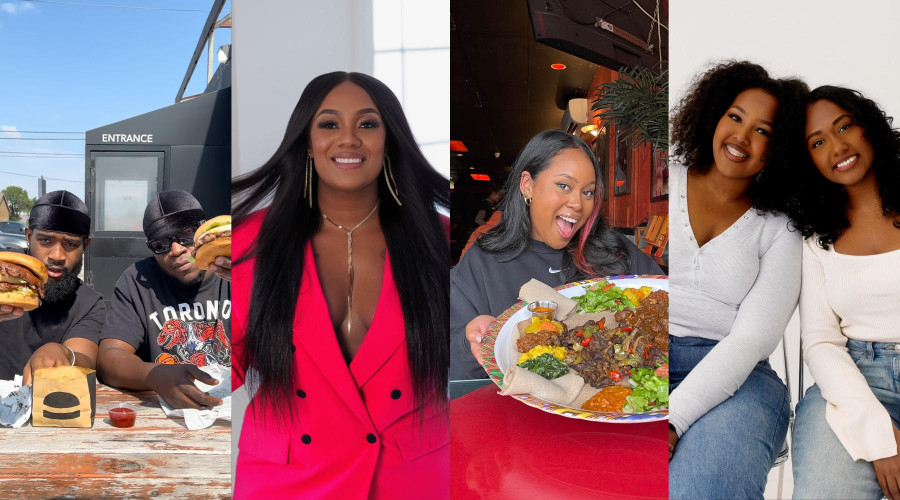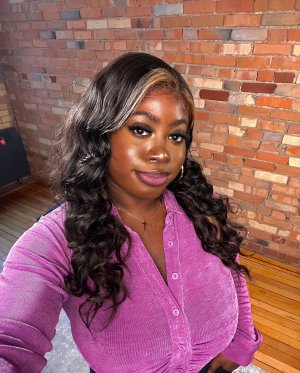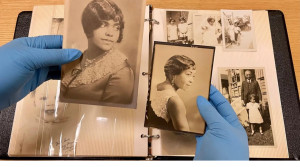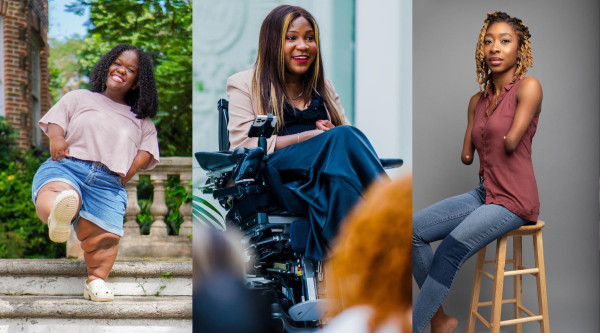You know the voice. You know the cadence.
“Wagwan TikTok?!”
Tasheka Mason is a content creator living in Toronto who was born and raised in Jamaica.
With over 136K followers on social platforms like TikTok and Instagram, Mason who’s known as Tash the Millionaire to her followers, built a brand that stood out from the crowd by staying true to her Jamaican roots.
“I grew into being an influencer. When I was doing it at first it was for fun but then I realized I could make money from this so I started taking it seriously and studying it,” said Mason.
Her videos cover everything from food reviews to clothing hauls, travel vlogs and skincare routines. Yet, what made her memorable was the honest, straightforward critiques and reactions done in Jamaican Patois. Her voice replicates everyone’s favourite Caribbean aunty who doesn’t hold back when loudly and proudly declaring how much they enjoyed or disliked a new product or food.
{https://www.instagram.com/reel/C0AhsOsNxqT/ }
“I think the type of content I create is me being my most authentic self. A huge part of it is paying homage to my Jamaican culture and my mom. If you knew my mom, you know that’s her voice, her attitude, her behaviour. Also, I’m honest – whether I’m being paid or not. It’s a huge part of why I am the way I am and my content is the way it is. It’s an interesting market that I’m reaching that a lot of influencers are not,” said Mason.
She describes her audience as mainly Black folks who don’t typically visit 5-star restaurants because they don’t see the environments, culture or food as a space for them. Yet, she mentioned that she also has non-Black followers who support her work simply because they appreciate Jamaican culture.
“It sounds exciting, it sounds fun and they want to see what I’m talking about. If I’m saying, ‘woi, the chicken thick like cow sh*t’, I’m creating an experience.”
{https://www.instagram.com/reel/C0y7nhpuv1O/}
In the past year alone, Mason has secured dozens of brand deals and partnerships with brands like Harvey’s, Flair Airlines, The Burger Priest and Canopy Hotel By Hilton.
Yet, in the early stages of her journey in 2021, she struggled with code-switching and negative feedback about how she spoke online.
“One of the challenges I faced in the beginning was code-switching – that was a big part of it but the other big part of it was the volume of my voice. A lot of people did not like the volume of my voice and they would make negative comments and try to say brands are not going to work with me, I’m too vulgar, I’m too loud – but I didn’t let that deter me,” said Mason.
Along with naysayers, she had to deal with some brands wanting her to downplay her identity as a Christian woman, which often shaped the narrative of her content.
“Even being a Christian, companies don’t want you to mention that in their videos. I would just be like, ‘This place is clean like Jesus’ slippers’, and for them – they’ll say they don’t want their brands to identify with any religion. But this is me. You are booking the influencer Tash and I’m known for being real and honest – there’s no reason why I’m going to sugarcoat it now to suit the brand’s needs. But I find the brands come around when you explain to them why it’s important,” said Mason.
She believes there has been a shift in how brands approach deals and pay big bucks – noting more appreciation now for her ability to reach a target audience compared to two years ago.
“In the beginning, brands would say they’re trying to reach the target audience that I have but they don’t understand how I was reaching these people. Now it’s like, we appreciate that you have this reach and we’re going to pay you well for it, so that’s where the shift is,” said Mason.
“Canada is not known to pay influencers properly and support the journey of becoming a full-time influencer – Canada is late to the game.”
{https://www.instagram.com/reel/CzjVTrOOjZn/}
Mason’s perspective is no surprise considering there’s still a pay gap between Black and white influencers. According to a 2021 study from MSL, a global public relations firm, there’s at least a 35 percent gap between Black and white influencers and Black creators often say they feel they have to work twice as hard as their white counterparts.
Between that and the notion that Black creators feel they “have to be perfect” to get promotional products from brands, seeing influencers break the status quo, speak in their cultural dialects, and secure deals and partnerships proves the influencing landscape is shifting.
While Mason’s loud Patois has paved a lane of her own, a growing trend within the Greater Toronto Area is content creation using the distinct “Toronto accent.”
For influencers like Paul McGhie, Melissa Ayisi and Ugbaad Nur, securing brand deals is not only a turning point for Black people creating content, but also a win for their communities that are often criticized for being “ghetto.”
“I’m a Scarborough advocate so that may come out in my communication from time to time. When people say things about Scarborough, it’s often loaded. It’s not just that place that’s ghetto or underserved. There’s a certain population that they are referring to and it's almost always Black people, people of colour, people with low income. So when people mention that in my comments like yeah she’s definitely from the east side, I’m proud of it,” said Ayisi who’s known as Big Belly Mel online.
{https://www.instagram.com/reel/CsH9VPMLCXw/?igshid=MzRlODBiNWFlZA==}
Ayisi’s food reviews have built her a following of over 39K online and she found a lane of her own by drawing on her Ghanaian roots and the way her family uses food as a tool for storytelling and cultural connection.
“My dad is a chef but we grew up low-income in Toronto community housing. I got the idea of using food to tell stories from my dad who is Ghanaian. There’s so much that goes into a dish and the culture behind it and it’s important we authentically center those stories,” she shared.
She describes her videos as far from the clean or modern aesthetic – she’s more than happy to pull up to the local food spot that may not have seating but the food is seasoned perfectly. Her small business reviews have led her to bigger deals and partnerships because of her ability to connect with Toronto natives.
{https://www.instagram.com/reel/Co8rORKj41s/?igshid=MzRlODBiNWFlZA==}
“Brands say, we want you to convey this message as best as you can and I’ve been able to have freedom with that.”
Paul McGhie from MarvedTV, had no idea that he spoke with a Toronto “mans” accent until he started making TikToks.
“People were saying I was faking an accent, forcing it – I was confused because I’ve always spoken like this. I’ve had corporate jobs and never had a problem with professionalism but on TikTok, I’m not going to speak how I talk at work. So I was shocked that people thought I was putting on a character when I was just being myself but I started seeing growth in our videos and I noticed a change in how other influencers were making their videos as well,” he said.
MarvedTV started on an iPad during the pandemic making food reviews and now has a following of over 58K. While he describes himself as more of a content creator than an influencer, he says brands accepting the Toronto “mans” accent is just one step forward for the city.
{https://www.instagram.com/reel/CnKcue7I7og/?igshid=NzBmMjdhZWRiYQ==}
“Yes, code-switching is dead but we also have to be mindful of how our concept is consumed, depending on what we’re sharing. Black people have always been great at entertaining and this is one step forward for Black people and Toronto. I’ve especially loved brands accepting us for who we are and our authenticity. Not once has a brand asked us to change our content or script. It’s a win-win,” he said.
With roots in Scarborough, Ugbaad Nur from Mixinthe6ix resonates with both Ayisi and McGhie’s humble beginnings. Mixinthe6ix covers food, self-care and reviews of activities in Toronto. They started filming after they felt that other content creators in Toronto weren’t making reviews fuelled by honesty but rather perfectionism. They also realized that as women of colour, the experiences they have with a business may look and sound completely different than those of their white counterparts.
“I rarely ever see people who look like me and speak like me getting brand deals in Canada within the content creation space where you have to speak a specific way and act a specific way to get brand deals, experiences and opportunities. When I scroll through TikTok and see ads, I’m counting and I don’t see any Black people, I don’t see Brown people, I don’t see Asian people. But people are looking for people who look and speak like them,” said Ugbaad.
The Mixinthe6ix crew has also found intersectionality between food and current political conversations – like in this TikTok series where they highlight Palestinian-owned businesses in Toronto.
“Seeing influencers talk how we would when we’re on roads in Toronto is really great because people are being themselves and it gives us a sense of community. When it’s someone who is Black and from your ends, from your city sharing an experience – it feels real and just like how we speak in our communities, storytelling with friends. We don’t need to code-switch because we need content for diverse populations and the people who get it, get it.”

 By
By 



